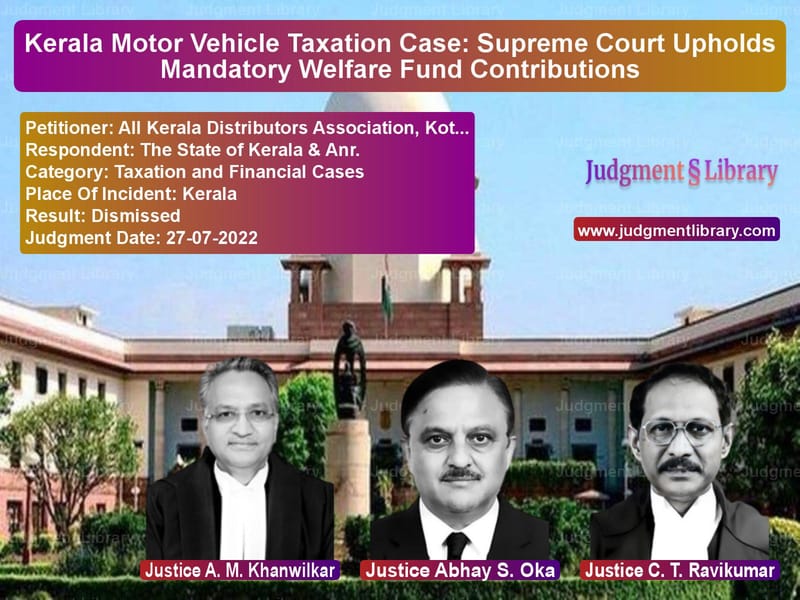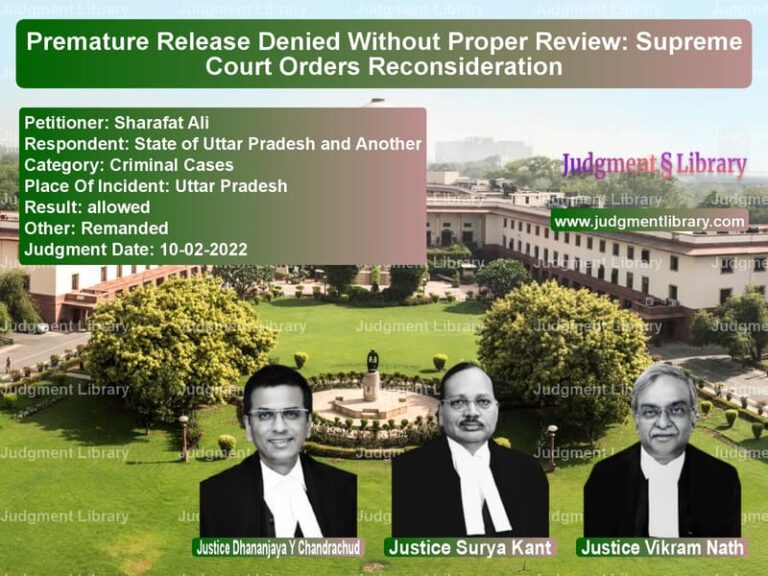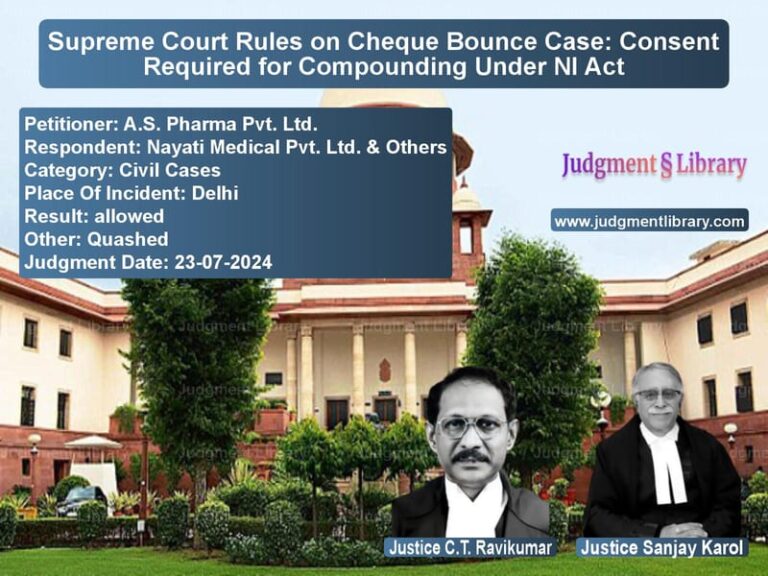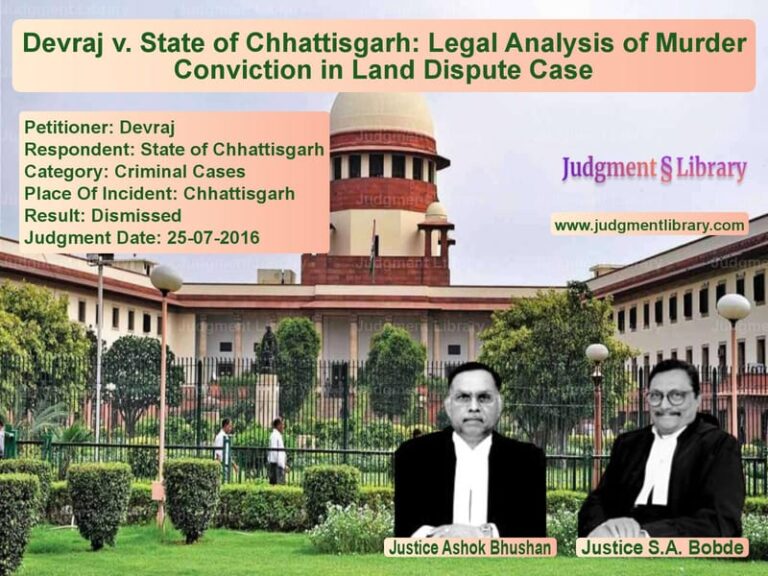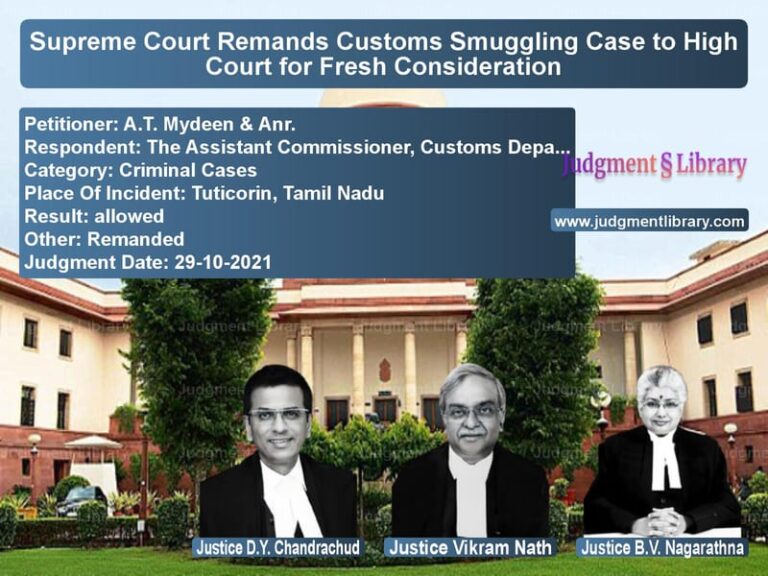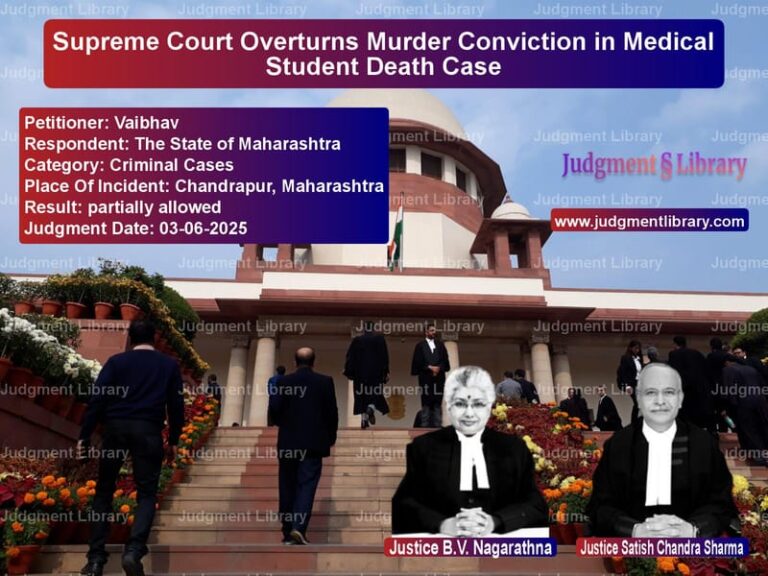Kerala Motor Vehicle Taxation Case: Supreme Court Upholds Mandatory Welfare Fund Contributions
The case of All Kerala Distributors Association, Kottayam Unit vs. The State of Kerala & Anr. is a landmark judgment where the Supreme Court upheld the constitutional validity of the Kerala Motor Vehicles Taxation (Amendment) Act, 2005. This judgment is significant as it determines the balance between state taxation powers, social welfare obligations, and the legislative competence of states in matters of vehicle taxation.
The legal dispute revolved around whether the state government could mandate vehicle owners to pay welfare fund contributions for transport workers before paying their motor vehicle tax. The petitioners argued that such a requirement was unconstitutional and violated their rights, while the state defended it as a necessary social welfare measure.
Background of the Case
The Kerala Motor Vehicles Taxation Act, 1976, was enacted to levy taxes on motor vehicles operating within the state. The 2005 amendment introduced sub-sections (7) and (8) in Section 4, which mandated that vehicle operators must provide proof of welfare fund contributions under the Kerala Motor Transport Workers’ Welfare Fund Act, 1985, before being allowed to pay vehicle tax.
This requirement created a direct link between taxation and labor welfare, making it obligatory for transport vehicle owners to contribute to the welfare fund before remitting their vehicle tax. The petitioners challenged this, arguing that it was an unfair financial burden and was unconstitutional.
Key Legal Issues
- Did the amendments to the Kerala Motor Vehicles Taxation Act, 1976, violate constitutional provisions?
- Did the amendments interfere with the Central Motor Vehicles Act, 1988, and create legislative repugnancy?
- Were the amendments arbitrary, and did they impose an unreasonable financial burden on transport vehicle operators?
- Was the state government within its legislative powers to enforce such taxation and welfare measures?
Arguments Presented
Petitioner’s (All Kerala Distributors Association) Arguments:
- The requirement to pay welfare fund contributions before vehicle tax was unconstitutional and violated their right to carry on business.
- The law was repugnant to the Central Motor Vehicles Act, 1988, which governed transport permits and taxation at the national level.
- The state legislature overstepped its jurisdiction by imposing additional financial burdens unrelated to vehicle taxation.
- The amendments created an arbitrary and excessive obligation on vehicle owners, effectively making tax payment contingent upon unrelated labor welfare contributions.
Respondent’s (State of Kerala) Arguments:
- The amendments aimed to protect transport workers and ensure their financial security.
- The amendments did not interfere with the Central Motor Vehicles Act, 1988, as vehicle taxation fell within the legislative domain of the state under the Constitution.
- The welfare of transport workers was directly linked to the operation of commercial vehicles, making the amendments reasonable.
- The amendments ensured compliance with welfare laws and prevented vehicle owners from evading their obligations under the 1985 Act.
Supreme Court’s Observations and Ruling
The Supreme Court upheld the Kerala High Court’s decision and ruled in favor of the state government. The Court made several key observations:
- The amendments were constitutionally valid and did not violate any fundamental rights.
- The Kerala Motor Vehicles Taxation Act, 1976, was enacted under the state’s legislative powers and was not in conflict with the Central Motor Vehicles Act, 1988.
- The requirement to pay welfare fund contributions before vehicle tax was a reasonable condition aimed at ensuring compliance with social welfare laws.
- The amendments did not interfere with transport permits but merely regulated taxation and compliance with labor welfare obligations.
The Court stated:
“The amendments serve a legitimate purpose of ensuring that vehicle operators fulfill their obligations towards transport workers while continuing their business.”
The ruling emphasized that state legislatures have the authority to enact laws for the welfare of laborers and workers, especially in industries where employment is informal or unorganized.
Key Takeaways from the Judgment
- The ruling affirms the power of state legislatures to link vehicle tax payments with welfare obligations.
- The judgment ensures that welfare fund contributions are not avoided by transport vehicle owners.
- The decision clarifies that state laws aimed at worker welfare are constitutionally valid if they do not directly contradict Central legislation.
- The ruling strengthens worker protections and prevents non-compliance by vehicle operators.
Impact of the Judgment
The Supreme Court’s decision in this case has several far-reaching implications:
- It sets a precedent for other states to link taxation policies with labor welfare measures.
- It prevents transport vehicle owners from evading social security obligations.
- It reinforces the state’s role in ensuring fair labor practices in industries that rely on informal employment.
- It clarifies the legislative boundaries between state and central laws regarding vehicle taxation and labor welfare.
Conclusion
The Supreme Court’s verdict in this case upholds the validity of Kerala’s taxation and welfare fund contribution requirements. The ruling strengthens worker protections and prevents non-compliance by vehicle operators while affirming the state’s authority to regulate vehicle taxation and welfare obligations.
This judgment serves as a crucial precedent in balancing taxation, welfare, and business interests, ensuring that financial obligations towards labor welfare are not ignored. It also reaffirms the legislative competence of state governments to impose social welfare-linked tax conditions, provided they do not directly conflict with central laws.
Petitioner Name: All Kerala Distributors Association, Kottayam Unit.Respondent Name: The State of Kerala & Anr..Judgment By: Justice A. M. Khanwilkar, Justice Abhay S. Oka, Justice C. T. Ravikumar.Place Of Incident: Kerala.Judgment Date: 27-07-2022.
Don’t miss out on the full details! Download the complete judgment in PDF format below and gain valuable insights instantly!
Download Judgment: all-kerala-distribut-vs-the-state-of-kerala-supreme-court-of-india-judgment-dated-27-07-2022.pdf
Directly Download Judgment: Directly download this Judgment
See all petitions in Tax Refund Disputes
See all petitions in Banking Regulations
See all petitions in Income Tax Disputes
See all petitions in Judgment by A M Khanwilkar
See all petitions in Judgment by Abhay S. Oka
See all petitions in Judgment by C.T. Ravikumar
See all petitions in dismissed
See all petitions in supreme court of India judgments July 2022
See all petitions in 2022 judgments
See all posts in Taxation and Financial Cases Category
See all allowed petitions in Taxation and Financial Cases Category
See all Dismissed petitions in Taxation and Financial Cases Category
See all partially allowed petitions in Taxation and Financial Cases Category

